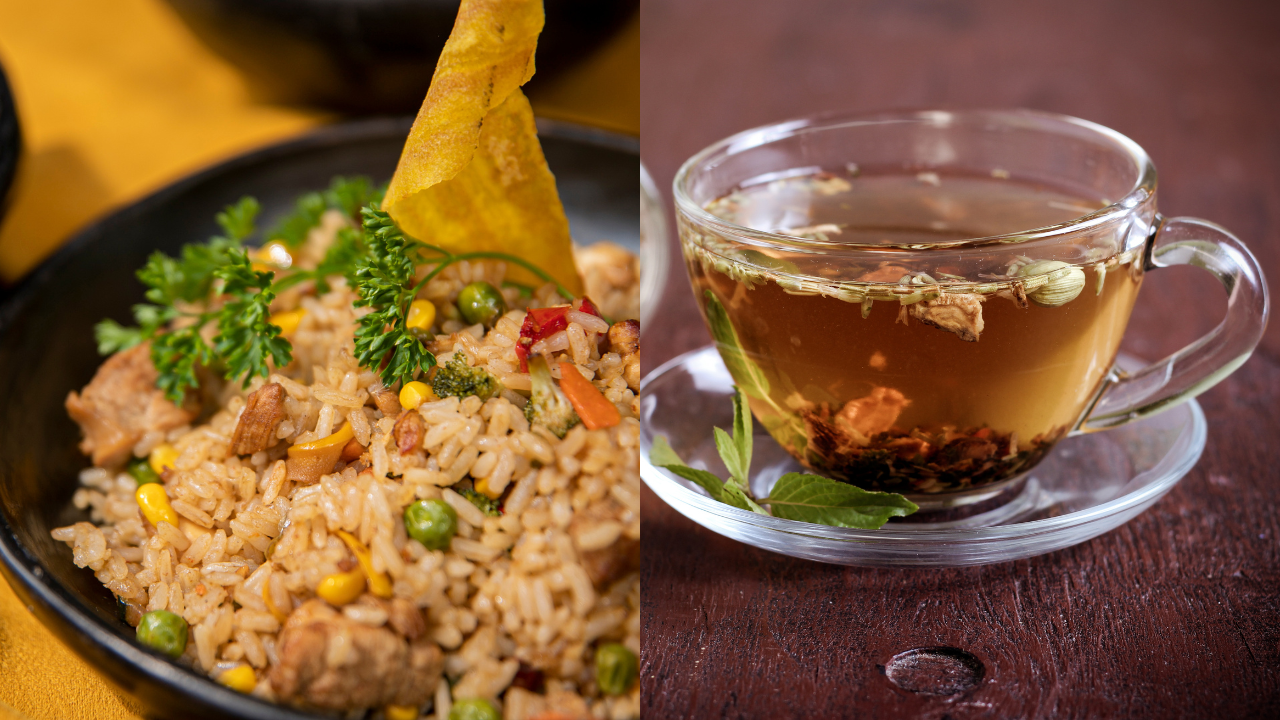Health
Transition to Monsoon: Expert Tips for a Healthier Diet

As the monsoon season arrives, the shift from the intense summer heat to cooler, more humid conditions necessitates significant dietary adjustments. This transition impacts various physiological aspects, including digestion, hydration, immunity, and energy levels. According to Dr. Tharanath S, a Consultant Physician and Infectious Disease Specialist at Sparsh Hospital in Bangalore, the foods we consume during this period can either bolster our health or lead to discomfort and illness.
Understanding the Importance of Diet During Monsoon
The onset of monsoon brings increased humidity and a higher risk of bacterial exposure. Dr. Tharanath emphasizes that while the digestive system may be more active than during peak summer, it remains vulnerable. “Moisture in the environment encourages microbial growth and makes us more susceptible to infections,” he explains. As such, it is crucial to choose light, warm meals that support immunity and digestion without overwhelming the gut.
Staying hydrated is essential, despite the perception that less water is needed during the rainy season. “People assume they need less water during the monsoon, but the body’s need for fluid does not disappear,” Dr. Tharanath warns. Instead of icy beverages, he recommends opting for warm herbal teas or water infused with ingredients like tulsi or ginger, which can promote digestion and boost immunity.
Recommended Foods for a Healthy Transition
During the monsoon, it is advisable to focus on seasonal fruits such as papaya, jamun, apples, and pears, which provide essential antioxidants. However, caution is advised with water-rich fruits like watermelon and muskmelon, as excessive consumption can lead to bloating and possible contamination. Dr. Tharanath suggests incorporating bitter vegetables such as karela, neem, and methi, which not only cleanse the blood but also offer protective properties against infections.
For grains, lighter options like brown rice, barley, and oats are recommended, while proteins should include moong dal and masoor dal for their nourishing yet easily digestible qualities. Traditional spices like turmeric, ginger, and black pepper can enhance meals with their antibacterial and anti-inflammatory benefits. Dr. Tharanath highlights the effectiveness of ajwain (carom seeds) in reducing bloating and gas during this season.
Certain foods should be avoided to maintain digestive health. Leafy greens, while nutritious, are more prone to contamination during the monsoon. Fermented foods can lead to indigestion in humid conditions, and street food poses a significant risk. Additionally, dairy products such as paneer and curd should be consumed in moderation, as they may increase mucus production and exacerbate respiratory issues.
To start the day on a positive note, Dr. Tharanath recommends a spoonful of chyawanprash or a glass of lukewarm water with lemon and honey, both of which can strengthen immunity. At the end of the day, a warm turmeric milk or spice-laced kadha can help prevent common ailments such as colds and sore throats. A handful of soaked almonds or walnuts can also provide an immunity boost.
Dr. Tharanath concludes with a simple yet powerful message: “The key to staying healthy during this seasonal transition is straightforward. Eat what supports your immunity, aids digestion, and aligns with nature.” By following these dietary guidelines, individuals can navigate the monsoon season with greater ease and well-being.
-

 World7 months ago
World7 months agoSBI Announces QIP Floor Price at ₹811.05 Per Share
-

 Lifestyle7 months ago
Lifestyle7 months agoCept Unveils ₹3.1 Crore Urban Mobility Plan for Sustainable Growth
-

 Science6 months ago
Science6 months agoNew Blood Group Discovered in South Indian Woman at Rotary Centre
-

 World7 months ago
World7 months agoTorrential Rains Cause Flash Flooding in New York and New Jersey
-

 Top Stories7 months ago
Top Stories7 months agoKonkani Cultural Organisation to Host Pearl Jubilee in Abu Dhabi
-

 Science7 months ago
Science7 months agoNothing Headphone 1 Review: A Bold Contender in Audio Design
-

 Sports6 months ago
Sports6 months agoBroad Advocates for Bowling Change Ahead of Final Test Against India
-

 Top Stories7 months ago
Top Stories7 months agoAir India Crash Investigation Highlights Boeing Fuel Switch Concerns
-

 Business7 months ago
Business7 months agoIndian Stock Market Rebounds: Sensex and Nifty Rise After Four-Day Decline
-

 Sports6 months ago
Sports6 months agoCristian Totti Retires at 19: Pressure of Fame Takes Toll
-

 Politics7 months ago
Politics7 months agoAbandoned Doberman Finds New Home After Journey to Prague
-

 Top Stories7 months ago
Top Stories7 months agoPatna Bank Manager Abhishek Varun Found Dead in Well









